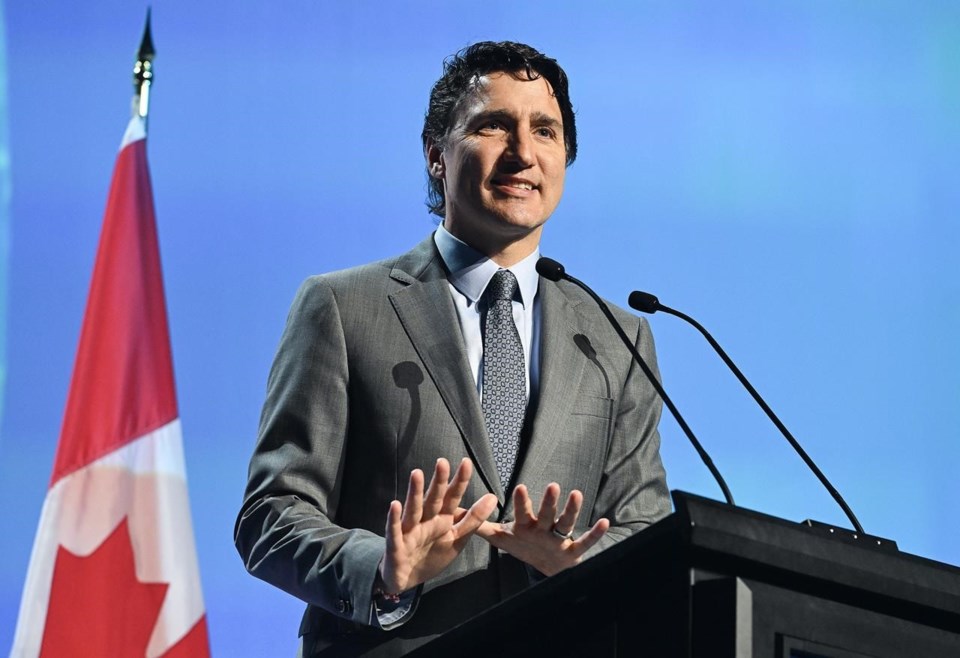OTTAWA — All three territories signed on to Prime Minister Justin Trudeau's health funding offer Thursday, leaving Quebec as the only holdout on the new accords.
Trudeau presented his offer at a meeting with provincial and territorial premiers in Ottawa in February as local politicians, doctors, nurses and health advocates raised concerns about a national health-care crisis.
The agreement would see the federal government shift $196 billion to the provinces and territories over the next 10 years in exchange for commitments to massively upgrade health-care data collection and digital medical records.
The offer includes $17 billion in new spending over and above existing federal health transfers and $25 billion for agreements tailed to the specific needs of individual provinces.
Following the meeting premiers signalled that they would agree, though the prime minister's offer fell well short of what they had hoped for.
The governments of Yukon, Northwest Territories and Nunavut suggested they were disappointed with the offer. They called on the federal government to put more money toward the Territorial Health Investment Fund, which helps pay for medical travel and other costs of delivering health care in the North.
Health Minister Jean-Yves Duclos said there was a breakthrough in negotiations with the territories after the federal government agreed to put $350 million toward that fund over the next 10 years.
"The health-care needs in the territories are significant," Duclos said at an online press conference Thursday. "The cost of serving these needs is also very significant for all sorts of obvious reasons."
The federal government had previously only committed to the Territorial Health Investment Fund for five years. In a statement, the Yukon government said extending it to 10 years was a key factor in the territory's decision to accept the federal health deal.
"It was important for the Yukon to receive a longer commitment for THIF in order to continue our health system transformation efforts," Renée Francoeur, a communications advisor for Yukon's cabinet, said in the statement.
The cost of hiring workers can be higher and many communities in the North are more remote, he said. There are also many First Nations and Indigenous communities that have been underserved by public health care over the years.
The latest agreements leave Quebec as the only province standing up to the new conditions the federal government has put on the cash.
Each province that signs on to the deal has been tasked with coming up with a three-year "action plan" that includes measurable targets and timelines to improve health care in their respective jurisdictions.
Quebec Premier François Legault was one of the most vocal provincial leaders calling for a deal with Ottawa, but bristled at being accountable to Ottawa for those set targets.
Duclos said his office is still negotiating with Quebec.
"There have been back and forths," Duclos said of the talks. "We know how important it is for Quebecers to benefit from the additional federal investment in supporting patients and workers in the province."
Ottawa has yet to receive any targets or timelines from the provinces, and the additional funding will not flow before that happens.
The federal government hopes to have the plans in hand before the end of the fiscal year in March, so that money put aside in the 2023 budget can be doled out quickly.
In the meantime, the federal government divided $2 billion between the provinces, including Quebec, to address urgent needs.
Premiers hoped Trudeau's offer could be considered a down payment on long-term health talks to negotiate a more sustained funding stream.
The premiers' annual summer gathering takes place in Winnipeg next week and health funding is sure to be on the agenda.
Duclos said in French Thursday that the Liberal government is open to renegotiating the tailored one-on-one deals with each province once the three-year period is complete.
This report by The Canadian Press was first published July 6, 2023.
Laura Osman, The Canadian Press




